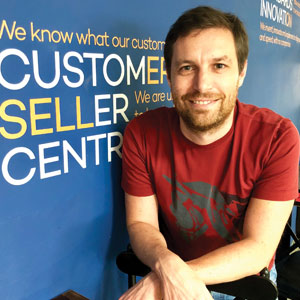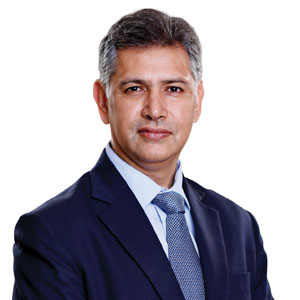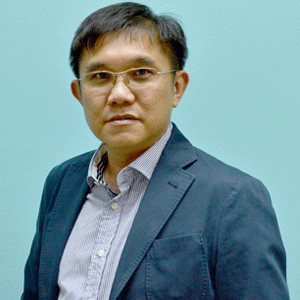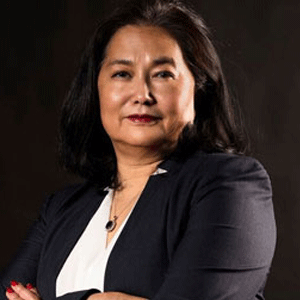THANK YOU FOR SUBSCRIBING

Time for Facilities Management to take a Seat at the Executive Table
Will Myles, Regional Managing Director for Asia Pacific, RICS


Will Myles, Regional Managing Director for Asia Pacific, RICS
Rapid technological disruption and blurring geographic and sector boundaries mean that competitive advantage is shifting in today's operating environment. To stay ahead, organisations must optimise and leverage work, workforce and workplace as the key value drivers for business competitiveness.
Increasingly hypercompetitive markets require businesses to refocus on outcomes and end users like never before. Adaptability in reconfiguring assets, people, and capabilities will allow organisations to maintain momentum in shifting sands. Farsighted companies are placing a premium on facilities management (FM) as a key differentiator to enable that transformation.
FM's old paradigms
There is clear recognition between FM professionals and demand organisations (DOs) that change is needed on both sides to capture optimal benefits from FM's contribution to business transformation.
Some DOs still view FM as a basic function, rather than a business enabler focused on procuring short-term, low-cost contracts, while some FM professionals compete on price rather than quality. Both contribute to the underutilisation of the sector and lost business opportunities.
Old paradigms of FM as only a necessary hit to the bottom line must give way as the FM sector integrates new ways of collaborative thinking, business skills and innovation to address shifting DO demands.
Redefining the role and purpose of the FM industry beyond an operational activity and into a strategic one requires critical, all-round collaboration between asset owners, clients, developers and service providers.
Involving FM professionals in the design and costing stage will allow a more accurate operational cost assessment of design options, thereby allowing clear whole life-cycle cost assessments to be carried out, leading to more informed and accurate decision making.
How FM will look going forward
The next generation of FM professionals will be business managers and leaders who are able to combine both strategic thinking and commercial expertise. They will be able to absorb and then break down an organisation's business plan for those working at operational levels to support the organisation's core objectives.
As the FM industry moves towards being part of the core business function impacting ongoing operation costs, staff retention, productivity and quality of work-life, service providers must be involved in decisions relating to business transformation from inception to define KPIs, as well as to articulate priorities and implement unified, facility-optimised solutions.
These sector changes are creating a new role for FM professionals, with strategic conversations on driving productivity and profitability that no longer just take place at the executive level — it is now one that FM professionals can influence.
The RICS-IFMA credential is a step forward to raising the level of professionalism in the industry and driving wider recognition of FM as a profession in its own right. However, more work is required to educate end users on the value of strategic FM.
Roundtable views from the ground: People, performance, procurement
Supporting these trends were insightful comments from a series of roundtable discussions with sector stakeholders in the Asia-Pacific region.
People who understand the organisational culture and values may cost more, but they are more likely to remain with an organisation for longer
People: Don't hire staff, hire ambassadors
The new talent and capabilities that companies must bring into FM operations to design and execute their business strategies will be the foundation for the transformation of FM into a strategic corporate function. How the FM industry and its professionals are trained and nurtured will be a key issue going forward.
Whether to outsource key services or bring functions in-house, is one of the most complex decisions FM providers must make. Should internal staff resources be trained and developed to become ambassadors for an organisation's culture and business plan, or are service providers a better solution? Losing internal staff means potentially losing expertise, team motivation and resilience, but service providers can supply the right people quickly, which can be more cost-effective and provide access to a wider pool of talent.
These considerations, compounded with the difficulty in attracting the right talent to FM, due to a perception that it's all about looking after assets, can make it difficult to hire into modern and strategic FM services.
Hiring people, rather than functions may help attract the right talent. People who understand the organisational culture and values may cost more, but they are more likely to remain with an organisation for longer, thereby reducing recruitment costs and averting reductions in operational performance.
Performance: Develop extended performance-based contracts
Longer-term, performance-based contracts must become standard to ensure business satisfaction and to capture the KPIs of FM transformation.
Short-term contracts generally do not allow sufficient time for strategic FM solutions to generate measurable results. This leads to dissatisfaction from the DOs and little motivation for the FM provider to implement strategic change, which ensures low-priced FM and an increased overall operational cost to the organisation.
For example, FM can support staff productivity by enhancing the working environment, creating collaborative spaces or ensuring optimal air conditioning and lighting. The challenge is to convey FM's impact and illustrate how it can identify specific strategies and implement mitigation tactics to improve the capacity of a DOs' facility over a longer period.
Procurement: Embrace technology but not at the cost of soft skills
Organisations know that the latest technology creates an attractive environment, which allows talent acquisition and productivity to experience a quantum leap. Consequently, organisations frequently demand the implementation of the latest technologies without fully understanding the desired outcomes and ramifications.
Technology is undoubtedly valuable — if it satisfies a need — but defining the "end game" is essential. Strategic FM, deployed at the outset, can first look at what improvements are needed and then employ the right tools to achieve them. If this is not done, both the DOs and FM professionals will be left wondering what to do with all the new information and none of the right people to analyse or implement it.
FM should position itself as a go-to for organisations learning how to use and interpret the flood of new data technology available. However, it is important to remember that strategic FM involves understanding the workplace: how occupiers use the space and consideration of how technology can be employed to improve the environment. From there, data obtained through new technology can support decisions that impact the work experience and lead to business transformation.
Conclusion — FM as a strategic enabler
Businesses are changing, so service providers must adapt to meet these changes and embrace them. The FM sector will be able to drive corporate productivity and profitability in new ways. The extent to which that happens will depend on whether it can develop new models of collaboration, frameworks and competencies to navigate an increasingly complex business environment.
It is clear that by including FM professionals from the outset, DOs can make more informed decisions, which should also lead to a more effective and engaged workforce, which ultimately drives productivity. Being able to deliver strategic objectives and drive value in talent management, dynamic workspaces and business innovation will become the new KPIs for FM professionals.
See More: Top Facility Management Companies











